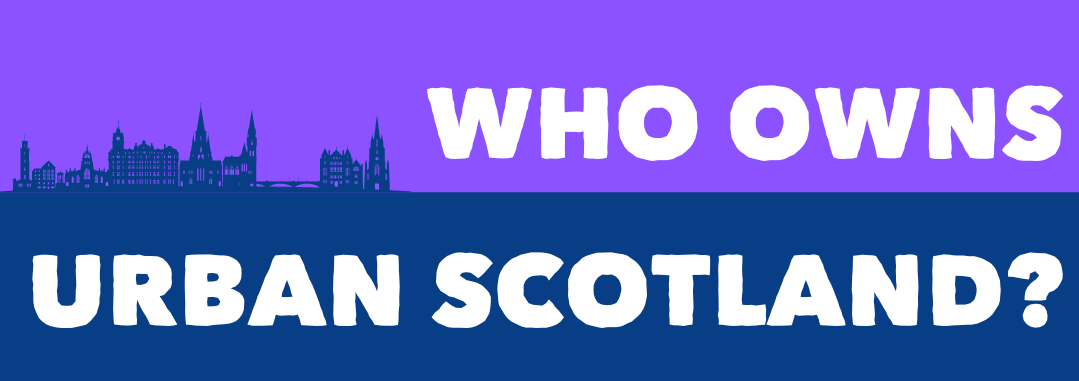Vital parts of Scotland’s infrastructure are linked to tax haven firms, China, multinationals accused of greenwashing, foreign pension funds and an Australian bank dubbed the ‘Vampire Kangaroo’.
The Ferret examined companies behind some of the major facilities and services the nation depends upon to operate a modern economy as part of our investigation, Who Owns Urban Scotland.

We looked at airports, sea ports, power suppliers, the strategically important Grangemouth oil refinery, and Scotland’s digital infrastructure.
Our research found that Scotland’s three largest airports and some major sea ports are linked to offshore entities, and that a firm building Scotland’s digital infrastructure is ultimately owned by a private equity fund. We also found that a Chinese state-owned firm partly controlling Grangemouth oil refinery with Britain’s richest man was accused of violating trade laws earlier this year.
Our findings prompted concerns over who owns key national assets and the potential for money to flow from Scotland to firms in secretive locations for tax reasons.
However companies stressed that they abide by regulations, provide substantial employment in Scotland and pay tax in the UK as required by law. The Scottish Government said it welcomes private investment for infrastructure and pointed out that legislation around corporate tax avoidance is reserved to the UK Government.
Airports
Edinburgh Airport is run by a private company called Edinburgh Airport Ltd, a subsidiary of a UK entity called Green Bidco Ltd, whose parent firm, Green Luxco, is registered in Luxembourg. Green Luxco’s parent firm is Green Guernsey Holdings, L.P., based in Guernsey.
The ultimate controlling party of the airport is a consortium of investment funds led by Global Infrastructure Partners (GIP), a private equity firm headquartered in New York City. GIP’s funds are managed by Global Infrastructure Management LLP which is linked to corporate entities registered in Delaware, a US state deemed a tax haven by the International Consortium of Investigative Journalists and Harvard Law School Forum.
The group running Edinburgh Airport also comprises Future Fund, which is Australia’s sovereign wealth fund, and Australian Retirement Trust, the largest pension fund in Queensland, Australia.
A spokesman for Edinburgh Airport told The Ferret: “Edinburgh Airport Limited is the operator of Edinburgh Airport, is incorporated in Scotland and pays full corporation tax on profits and other employment taxes and business rates. As regards transparency, our approach to tax is published on our website, and we are confident that the airport makes a substantial social and economic contribution to Scotland and the UK.”

Glasgow Airport and Aberdeen Airport are owned by AGS Airports Ltd, a joint venture between Spanish multinational, Ferrovial, and Australian financial group, Macquarie, which controls half of the business through a firm called AGS Ventures Airports Limited, registered in the tax haven of Jersey.
Macquarie, based in Sydney, has been dubbed the ‘Vampire Kangaroo’ for its tough pursuit of profit – a moniker it rejects. It has a swathe of UK assets and claims to have plowed more than £50bn into UK infrastructure projects in recent years. Its projects include the M6 toll road, Southern Water and National Grid’s transmission system.
A spokesperson for Macquarie Group told The Ferret: “AGS Ventures Airports Limited is a UK tax resident and pays tax on its income like all other UK companies. We are proud of the contribution we have made to Aberdeen and Glasgow’s international gateways since our investment in 2014, including the additional support provided to help navigate the challenges posed by the pandemic.”
The Scottish Government owns Prestwick Airport which it bought for £1 in 2013 to protect jobs after its last owner failed to find a buyer amid mounting losses.
Grangemouth refinery
Grangemouth – one of six oil refineries in Great Britain – supplies two-thirds of the petrol and diesel for forecourts in Scotland. About 2,000 people are employed at the site.
In 2011, the global chemical company, Ineos, and PetroChina – one of the largest oil and gas firms in the world – formed a joint venture company, Petroineos, to operate refineries at Grangemouth, and Lavéra, France.
PetroChina is the publicly listed arm of China National Petroleum Corporation (CNPC) – ranked as the world’s fourth largest company on Fortune’s Global 500 list. CNPC was accused of violating trade laws this year after allegedly selling 1.32bn barrels of oil to private refiners.
In 2020 the founder and chief executive of Ineos, Sir Jim Ratcliffe, quit Britain for tax-free Monaco. Ratcliffe is Britain’s richest man with an estimated £12.58bn fortune. Ineos has been accused of “greenwashing” over plans to keep burning fossil fuels and mitigate the impacts by carbon capture and storage. Ineos was asked to comment.
Ports
Scotland’s ports were privatised in 1992. Forth Ports, which owns and operates Leith, Grangemouth, Rosyth, Methil, Burntisland and Dundee, is owned by the Public Sector Pension Investment Board (PSP), a Canadian pension fund.
Forth Ports also owns the Port of Tilbury, London. Forth Ports’ parent firm is Otter Ports Limited whose ownership structure, as reported by The Herald this year, is linked to the Caribbean tax haven of the Cayman Islands and Canada through Otter Ports Holdings Limited.
A spokesperson from Forth Ports said: “Forth Ports is a proudly Scottish-based company that is registered and headquartered in Scotland where all major decisions are taken. The company, which is a real living wage employer, invests heavily in Scotland – £50m in the Port of Dundee; £60m in the Port of Grangemouth; and the recently announced £50m to create Scotland’s largest renewable energy hub at the Port of Leith.
“Otter Ports Group Holdings Limited, which is the ultimate holding company for Forth Ports Limited, is a UK tax resident entity and pays corporation tax to HMRC like any other UK registered company.”
Ports on the Clyde are owned and operated by Clydeport, one of the largest property investment companies in the UK. Clydeport, which oversees 450 square miles of the River Clyde, is owned by Peel Ports Group. Its ultimate holding company is Tokenhouse Ltd based in the tax haven of the Isle of Man.
A Peel Ports spokesman said: “We’ve invested multi-millions of pounds into various operations on the west coast, providing hundreds of direct and indirect jobs for Scotland over many years.
“From the cruise facilities at the Ocean Terminal in Greenock to ambitious plans for the former coal port at Hunterston, our intentions are fully aligned with the country’s economic strategy.
Power and energy
ScottishPower is owned by the Spanish company, Iberdrola, which was accused of greenwashing last year because it has opened four new gas-fired power plants in Mexico since 2019. Critics said the Mexican plants meant that Iberdrola would continue to produce carbon emissions for the duration of the 25-year contracts.
The Herald revealed in August that ScottishPower has handed nearly £7bn in dividends to its foreign owners since being taken over 14 years ago.
A spokesperson for ScottishPower said Iberdrola is “one of the world’s largest renewable energy companies and world leader in wind energy” and aimed to become carbon neutral by 2040.
“In the UK, ScottishPower was the first integrated energy company to go 100 per cent green and only generates renewable electricity. Last week we increased our investment in the UK to a new record high of £6.7bn to be spent between 2023 and 2025.
“That will support the delivery of a record number of green infrastructure contracts across our renewables and networks businesses in the UK, including 19 new renewable energy projects and upcoming essential construction and upgrades to its electricity grids.”
Digital infrastructure
The rollout of 5G – the Scottish 4G Infill programme (S4GI) – requires greater physical infrastructure including new fibre-optic cable in the ground and more 4G masts.
The S4G1 programme will be delivered by infrastructure provider WHP Telecoms, a firm registered in England which is a subsidiary of Whistler Topco Ltd, whose ultimate controlling party is a private equity firm based in London called Equistone LLP. WHP Telecoms was asked to comment.
Reaction
Paul Monaghan, chief executive of Fair Tax Foundation said: “Worryingly, many of the jurisdictions flagged by The Ferret investigation are not just tax havens, but also secrecy dominions. The ultimate owners of corporate entities are not just hidden from the public, but also, in some instances, from tax authorities.”
He added: “Scotland needs to have a clear sight of who owns key national assets, and the revenue, profits and taxes that flow from this at a country level. Fair Tax Mark accredited businesses are more than happy to do this, such as SSE plc, so why not others? More broadly, government procurement and commissioning should be newly allowed to factor in the tax conduct of corporate entities; however, currently, the UK Government is firmly blocking the advance of such considerations at both a national and local level.”
Worryingly, many of the jurisdictions flagged by The Ferret investigation are not just tax havens, but also secrecy dominions. The ultimate owners of corporate entities are not just hidden from the public, but also, in some instances, from tax authorities.
Paul Monaghan, Fair Tax Foundation
Kenny MacAskill, the Alba Party MP for East Lothian, said that the “problem of foreign land ownership” in Scotland is well known but the control of vital infrastructure is “far less so yet arguably even more important”.
He added: “It’s not just profits leaving the country but the lack of control and even being subservient to the interests of others. In ports, the owners of the Forth and Clyde Ports have a greater stake in the Thames and Mersey. That affects investment and the economy of the country. It’s the same with airports as we’re hubbed into London and with other equally critical sectors.”
A Scottish Government spokesperson said it seeks to develop constructive working relationships with those investing in facilities such as ports and airports, adding that commercial entities provide “substantial employment” and “contribute significantly” to the country’s economic growth and prosperity.
The spokesperson continued: “While legislation around the acquisitions of facilities in sectors including energy and transport, and legislation around corporate tax avoidance, is reserved to the UK Government, the Scottish Government expects all owners and investors – both domestic and those from overseas – to, of course, comply with all relevant laws and regulations.”
The UK Government was asked to comment.
Who Owns Urban Scotland is an investigation by The Ferret looking into the firms controlling Scotland’s towns and cities. Support our journalism by becoming a member for £5 a month at theferret.scot.















The gas network, SGN, is also foriegn owned. SGN exists to make a profit for its stakeholders. The most economic and efficient way of decarbonising heat is by electrification, but this would mean SGN having to write off its assets, so it is lobbying hard to have hydrogen replace methane in our gas network. In 2014, SGN was awarded funding from the industry regulator, Ofgem, to develop two projects. “Opening up the Gas Market” is an investigation into whether the British Gas Safety Regulations could be changed to accept different types of gas. Gas embrittles pipe so that they leak. A second publically funded project “Robotics” is a project to develop technology for repairing steel mains without interrupting the gas. Read SGN’s “Aberdeen Vision”. This is not about decarbonisation – it is about retaining a monopoly on dometic heating.